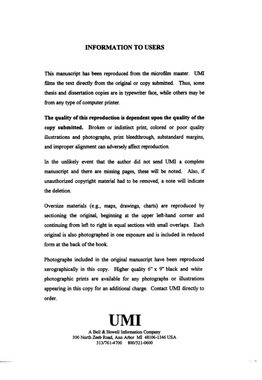| dc.contributor.advisor | Sankowski, Ed, | en_US |
| dc.contributor.author | Herrera, C. D. | en_US |
| dc.date.accessioned | 2013-08-16T12:29:30Z | |
| dc.date.available | 2013-08-16T12:29:30Z | |
| dc.date.issued | 1997 | en_US |
| dc.identifier.uri | https://hdl.handle.net/11244/5424 | |
| dc.description.abstract | Experimental psychology often involves the intentional deception or manipulation of human subjects. Psychologists typically defend deceptive experiments by first presupposing either the innocuousness of the deception or the importance of science. As I will show, psychologists have yet to justify deceptive experiments in terms that are not themselves contingent on value claims regarding such things as the freedom of inquiry or the role of scientific knowledge in Western societies. This dissertation offers a reexamination of deceptive psychology experiments, combined with an understanding of their historical and social background. My conclusions have implications for other areas of human-subject research, and the theory of informed consent. In that sense, I mean my discussion to show the need to ground all human-subject research within a common ethical framework. | en_US |
| dc.format.extent | vii, 204 leaves ; | en_US |
| dc.subject | Human experimentation in psychology Moral and ethical aspects. | en_US |
| dc.subject | Psychology Research Moral and ethical aspects. | en_US |
| dc.subject | Psychology, Experimental. | en_US |
| dc.subject | Psychology, Social. | en_US |
| dc.subject | Philosophy. | en_US |
| dc.title | Issues concerning deception and informed consent in psychology experiments. | en_US |
| dc.type | Thesis | en_US |
| dc.thesis.degree | Ph.D. | en_US |
| dc.thesis.degreeDiscipline | Department of Philosophy | en_US |
| dc.note | Source: Dissertation Abstracts International, Volume: 58-01, Section: A, page: 0186. | en_US |
| dc.note | Major Professor: Ed Sankowski. | en_US |
| ou.identifier | (UMI)AAI9719651 | en_US |
| ou.group | College of Arts and Sciences::Department of Philosophy | |
